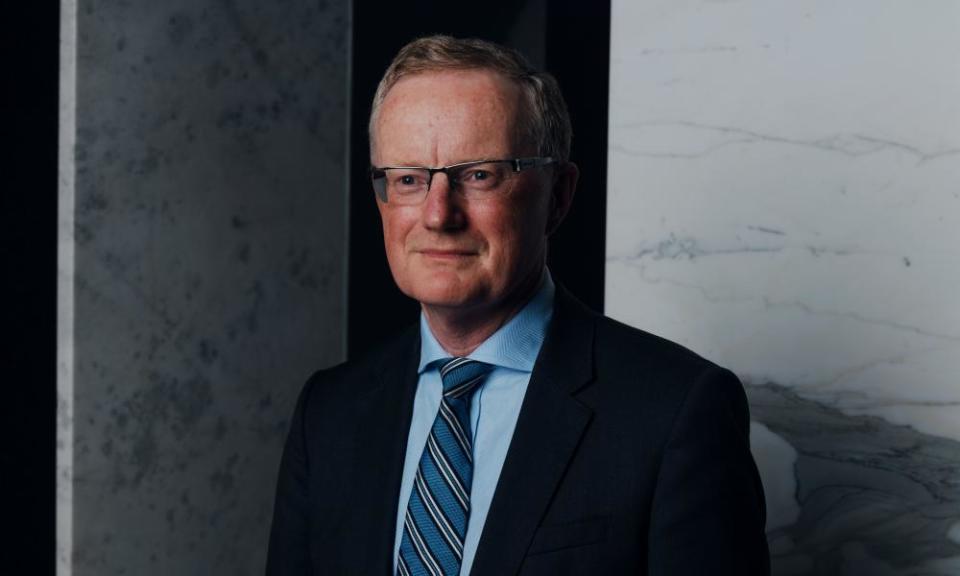RBA governor Philip Lowe signals central bank is open to retail digital currencies

Australia’s Reserve Bank has flagged support for a retail form of digital currency, with governor Philip Lowe outlining ways that tokens, rather than regular dollars, might circulate more freely in the economy.
In a speech on Thursday dubbed Payments: the future?, Lowe said the world of payments was becoming “more exciting and dynamic” by the year, with the shift away from traditional forms of payment towards digital varieties gathering pace.
Consumers were increasingly familiar with digital wallets offered by tech giants such as Apple, Samsung and Google, providing access to existing bank and credit card accounts. Meanwhile, the value of ATM withdrawals over the past six months was about 30% lower than the comparable period three years ago, he said.
Related: ‘An enormous opportunity’: Coalition to consult on a central bank digital currency
“How far we go in this direction and what form these tokens might take are yet to be determined,” Lowe said.
The Reserve Bank governor’s statements follow the release on Wednesday of a report looking at the wholesale options for a central bank digital currency (CBDC).
Also on Wednesday, the federal Treasury released its report on transforming the payments system, noting more than 800,000 Australians have transacted in digital assets in the last three years. The number has risen 63% this year alone compared with 2020.
Treasury will review plans for a CBDC and provide advice to the government after next year’s election, by the end of 2022.
As with most central banks, the RBA is wary of promoting cryptocurrencies given their volatile nature, even with a market now valued in the trillions of dollars globally.
Of three possibilities for a retail form of a CBCD, Lowe said he remained “sceptical that we will head in this direction [of cryptocurrencies] for general purpose payments,” Lowe said.
“It is likely that the asset used for the settlement of most transactions in the economy will remain some form of secure fiat currency [such as the Australian dollar] with a stable value, rather than cryptocurrency with a volatile price.”
“That is not to say there is no role for crypto assets,” he added. “They can help support innovation, especially where they are linked to smart contracts and used in decentralised finance (or DeFi) applications.”
Other possibilities included tokens issued by, and backed by, the RBA, just as it issued and backed Australian dollar banknotes, Lowe said.
“To date, though, we have not seen a strong public policy case to move in this direction, especially given Australia’s efficient, fast and convenient electronic payments system,” he said. “It is possible, however, that the public policy case could emerge quite quickly as technology evolves and consumer preferences change.”
The third possibility was that an entity other than the central bank issues and backs the payment token in a form still denominated in Australian dollars, also dubbed an eAUD.
These could be take the form of stablecoin, a type of cryptocurrency backed by a high-quality asset such as a bond that meets robust standards for safety and security.
“So if privately issued stablecoins are ultimately the way things head, it will be crucial that they meet very high standards,” Lowe said, adding the RBA was working with domestic regulators and counterparts around the world to resolve the various issues.
Related: ‘An enormous opportunity’: Coalition to consult on a central bank digital currency
Ellie Rennie, a professor at RMIT University and a member of its Blockchain Innovation Hub, said the fact the RBA is publicly considering retail CBDCs was “really significant and interesting, whether that is issued by them or as a stablecoin”.
“It’s acknowledging that this is in many respects a way for them to keep control of money, which otherwise if they don’t do this,it’s kind of getting away from them.”
The circulation of private stablecoins, for instance, was already worth billions of dollars.
Rennie said it was likely that the RBA won’t issue tokens itself, at least if the Bank of England’s stance is any guide.
“In a western democracy [they think] it’s better done in the private sector, and that’s how our banking sectors have been set up,” she said.
Rennie predicts it will be at least a couple of years before a system is in place for eAUDs to become common, with the necessary laws and regulations.
“I think it’s a fair way off,” she said.

 Yahoo Finance
Yahoo Finance 